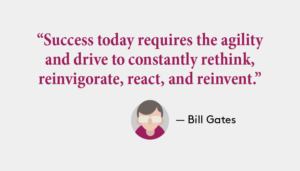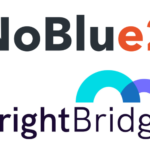Many small and medium sized companies may be thinking that it’s time to upgrade their business IT systems, but they’re not sure if they’re ready to go ahead and implement a full ERP solution, or whether they should go for a standalone accounting software product. Here, we explain the differences and attempt to help you decide which of the two you need.
What’s the difference?
As the name would imply, an accounting package handles only the accounting business functions. Enterprise Resource Planning (ERP) software handles an entire range of business functions covering functional areas like accounting and finance, professional services automation, HR and payroll, Customer Relationship Management (CRM), inventory and supply chain, project management and more.
Accounting software or ERP software: Which should you choose?
When deciding whether to implement ERP software or accounting software in your business, ask yourself the following questions:
How many disparate systems will you have to manage?
If you purchase standalone accounting software, will you be using a separate piece of software to manage your leads, customers, partners and vendors (i.e. CRM software), another piece of software to manage your stock, and yet another one to manage your projects?
Think about how many separate point solutions you will need to manage and maintain. One of the biggest downsides of having multiple systems across your business is that IT management can become a nightmare. Customising these systems, integrating them and maintaining them with patches and upgrades can be complex, costly and use up critical time and resources.
Whilst it is likely that you can integrate some of these disparate solutions so that they feed each other information, you’re still left managing several systems at the same time. And when various front- and back-end systems run separately, it can wreak havoc on the processes that are meant to ensure your company is running smoothly.
If you believe that you will be managing several point solutions as well as your accounting software, perhaps it’s time to consider investing in an ERP system.
ERP software integrates these systems so that every business function relies on a single database. This means you only have one system to worry about. And with only one source of information, your staff have easier access to data and duplicated effort is therefore reduced.
Are you planning business growth?
If you are planning growth, then it makes sense for you to consider ERP software. Do you risk investing in standalone accounting software now (and potentially two or three other point solutions), only to replace them all with an ERP three years down the line?
Whilst many accounting packages are great for small and medium businesses, they may start to struggle to cope with high volume companies and larger enterprises. So if you choose an accounting package now and you achieve growth, then bear in mind that you may outgrow the system’s capabilities and have to upgrade to a more feature-rich ERP solution at a later date.
Most ERP software is scalable and usually modular in design (particularly cloud-based ERP), so you can continue to build on your system as your company grows and your requirements change.
Do staff outside of your accounting team need visibility of certain financial data?
When each department in a company has their own separate system designed to complete their own tasks, this means they can only see the business data that is within that system. So it’s usually the case that only people in your accounts department can view financial data.
However, it may be beneficial that members of other departments can view certain data that is contained within the accounting software. They don’t need full access, but it would be handy for them to see certain information. For example, a member of the sales team might need to know how much a customer paid for their last order but currently, they have to go and ask one of the accounts team to find out this information.
With ERP software, all the information is in the same system so each employee can see what they need to see without disturbing other teams. This doesn’t mean that everyone has access to everything – you can, of course, set restrictions which means each employee only has access to the information they actually need to complete their own roles.
Do you need to be able to report on KPIs across your entire business?
Despite your chosen accounting software probably offering good reporting and analytics tools, the problem is it won’t pull together data from across your entire organisation. Your reports will only include financial data and won’t tie in data from other parts of the business, such as sales or stock levels. For example, you may need to create a sales order vs. invoice report which you can only get by linking your financials to your CRM software.
ERP software provides powerful reporting tools and search capabilities because it incorporates all key business data from across the whole business. This means, provided you have the access rights, you’re able to locate any type of data you need from any department quickly and easily. You can then create accurate reports on key aspects of your business.
You may also find our page “Why use ERP software?” helpful.
I hope you find this useful when trying to decide whether to choose ERP software or standalone accounting software for your own business. Please go ahead and share your own experiences in the comments box below.
NoBlue provides cloud-based business management software, NetSuite, which is ideal for growing businesses and larger companies. If you’d like any further information, please get in touch with us!










